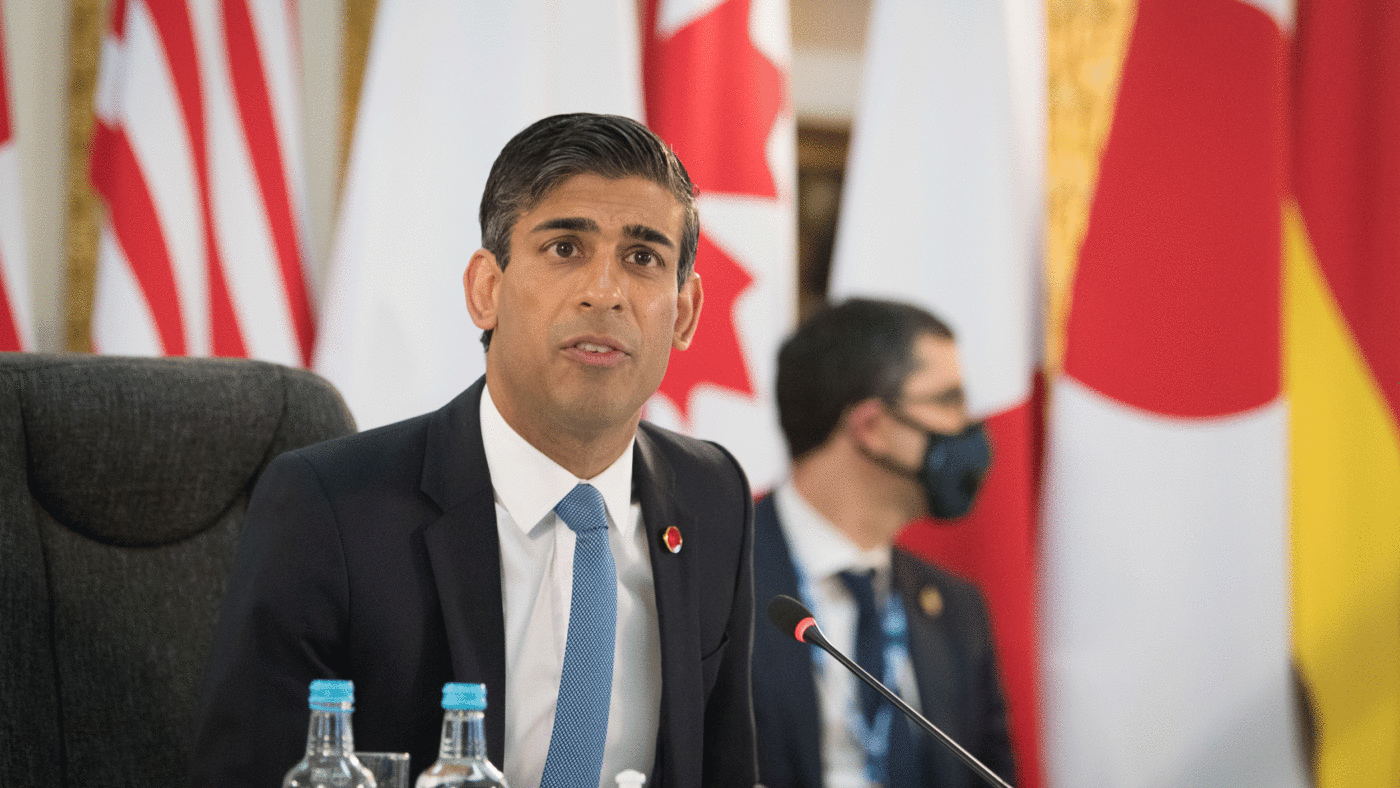‘You know what happens when politicians get into Number 10’ Sir Humphrey Appleby remarks to his counterpart in Yes Prime Minister. ‘They want to take their place on the world stage.’ ‘People on stages are called actors’ comes the reply. ‘All they are required to do is look plausible, stay sober, and say the lines they’re given in the right order.’
A notable teetotaller, Rishi Sunak has looked increasingly plausible on the world stage in recent weeks. His measured and conciliatory approach has secured a breakthrough with France on the thorny issue of migration. The Windsor Framework has put an end to the agonising melodrama of Brexit. And the fledgling AUKUS partnership looks set to take flight.
These agreements suggest the Prime Minister has more skill as a statesman than his experience suggests, and have helped his embattled party regain the political initiative. Latest polls suggest the Tories are beginning to close the gap on Keir Starmer, though there remains a mountain to climb.
What remains unclear is the extent to which Sunak’s successes on the international stage are translating into electoral appeal. Since the turn of the millennium, foreign policy has polled lowest on the long list of voters’ priorities. Even in the midst of the war on terror and resulting conflicts in Afghanistan and Iraq, the economy and key public services like healthcare and education have been at the forefront of voters’ minds on polling day.
This needs to change. Foreign policy exists to safeguard our security and prosperity. But in today’s interconnected world it is increasingly difficult to distinguish between foreign and domestic concerns. Cross Channel migration has shown how we feel the impact of instability in other parts of the world. And as our leaders never tire of telling us, the current cost of living crisis is inextricably linked to the war in Ukraine.
Britain faces serious challenges that will require a foreign policy that is as artful as it is adaptive. The war in Ukraine highlights the growing risk posed by autocratic regimes. Multilateral challenges like climate change are not going away. Nor is the ever-present threat of nuclear proliferation, with the prospect of a nuclear arms race in the Middle East no longer the stuff of nightmares. And all the while, Britain’s economy relies on trade deals, foreign investment, and international supply chains that require constant attention.
We must also manage a world order that is changing rapidly. Our commitment to the special relationship with the United States means we must navigate the evolving US-Sino rivalry. The Government’s refreshed Integrated Review characterised China as ‘an epoch-defining and systemic challenge with implications for almost every area of government policy and the everyday lives of British people.’ The scale of this challenge has not gone unnoticed by the British public. Perceptions have been hardening since 2019 according to pollsters YouGov, with 75% of people now holding a negative view of China.
Such statistics show that people care about Britain’s role in the world and the foreign policy that underpins it. Cast your mind back – if you dare – to Brexit. The decision over whether the UK should leave the European Union has proved to be one of the most consequential in our recent history. Not to mention one of the most divisive. Turnout was over 72%, compared to 67% at the 2019 General Election.
Whilst effective statesmanship may not win you votes, foreign policy misadventures can be costly. Tony Blair was quick to acknowledge the ‘Iraq effect’ when Labour’s majority was slashed by almost 100 seats in the 2005 election. Meanwhile Donald Trump’s distain for America’s foreign policy playbook alarmed those in uniform and within the Republican Party ahead of the 2020 election. Conversely, even Boris Johnson’s most ardent detractors concede he played a blinder on Ukraine.
Foreign policy matters. Not because of some dated notion of imperial grandeur but because it protects our interests. It keeps us safe and keeps us prosperous. In recent weeks, the public have seen the benefits of getting this right. And in recent years they have felt the impact of getting it wrong. In a time of global uncertainty, the kind of figure our leader cuts on the world stage matters more than ever.
Click here to subscribe to our daily briefing – the best pieces from CapX and across the web.
CapX depends on the generosity of its readers. If you value what we do, please consider making a donation.


